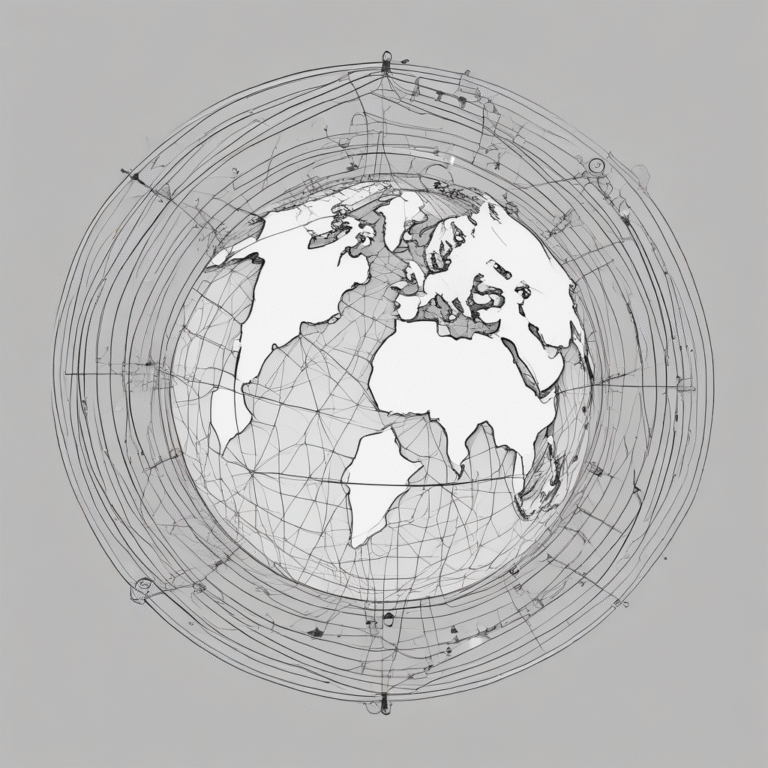Understanding the EU AI Act and Its Global Impact
The EU AI Act is a groundbreaking piece of legislation that is set to revolutionize the governance of artificial intelligence (AI) across the globe. This act aims to establish stringent regulations to ensure ethical and transparent use of AI technologies, impacting various stakeholders from developers to end-users.
The Importance of the EU AI Act
The EU AI Act marks a significant turning point in the history of AI governance. It introduces rigorous requirements for transparency and risk management, compelling organizations to adopt ethical frameworks in their AI operations. This legislation is not merely about compliance but represents a new paradigm in how technology interacts with society.
Compliance Challenges in the Tech Industry
As the EU AI Act gains traction, companies face a multitude of challenges in adapting to its compliance measures. Key questions arise, such as:
- How can we balance innovation with regulatory requirements?
- What does ethical AI deployment entail?
The tech industry is undergoing a substantial transformation, emphasizing ethical considerations alongside technological advancements.
Strategies for Navigating Compliance
In response to the new regulations, many companies are redirecting their strategies to prioritize transparency and risk management. This shift not only helps in meeting compliance requirements but also fosters a culture of ethical innovation. Businesses that adapt quickly have the opportunity to redefine their success by embedding ethical standards into their core processes.
Real-World Applications and Case Studies
One notable example involves a leading tech firm that undertook a comprehensive overhaul of its AI protocols to align with the EU AI Act. This transition was not just about compliance but also about rebuilding trust with its user base. The firm’s efforts led to enhanced user engagement and satisfaction, demonstrating the broader goals of the Act.
Tools for Success: Leveraging Technology
Many organizations are utilizing advanced compliance tools to streamline the process of aligning their AI systems with regulatory demands. These tools are vital for maintaining a competitive edge while ensuring adherence to ethical guidelines. By integrating such tools, companies can enhance their operational efficiency and ethical deployment strategies.
Innovation Through Stakeholder Engagement
Another innovative approach that has emerged is the integration of stakeholder feedback into AI deployment strategies. By actively engaging with users and incorporating their insights, companies can ensure that their AI solutions meet real-world needs while remaining compliant with ethical standards.
The Role of Transparency in AI Governance
A significant finding during this transition is the value of transparency in communicating AI decision-making processes to end-users. This practice not only fulfills regulatory obligations but also enhances user trust and satisfaction, reinforcing the competitive advantage of businesses that prioritize openness.
Expert Insights on Regulation and Innovation
Industry leaders emphasize that regulations like the EU AI Act should be viewed as catalysts for innovation rather than obstacles. By fostering a culture of responsible innovation, organizations can navigate the complexities of compliance while advancing their technological capabilities.
Immediate Outcomes and Long-Term Benefits
As companies implement the changes mandated by the EU AI Act, they are witnessing immediate improvements in customer trust and compliance metrics. The Act not only aims for sustainable growth in AI but also ensures that advancements are made ethically and responsibly.
Conclusion: The Journey of Ethical AI Governance
The EU AI Act signifies a new era of AI governance, emphasizing the importance of ethical standards in technology. As this narrative unfolds, the lessons learned will pave the way for future advancements in artificial intelligence. By embracing regulations as opportunities for growth, the potential of AI can be harnessed as a force for good in society.










